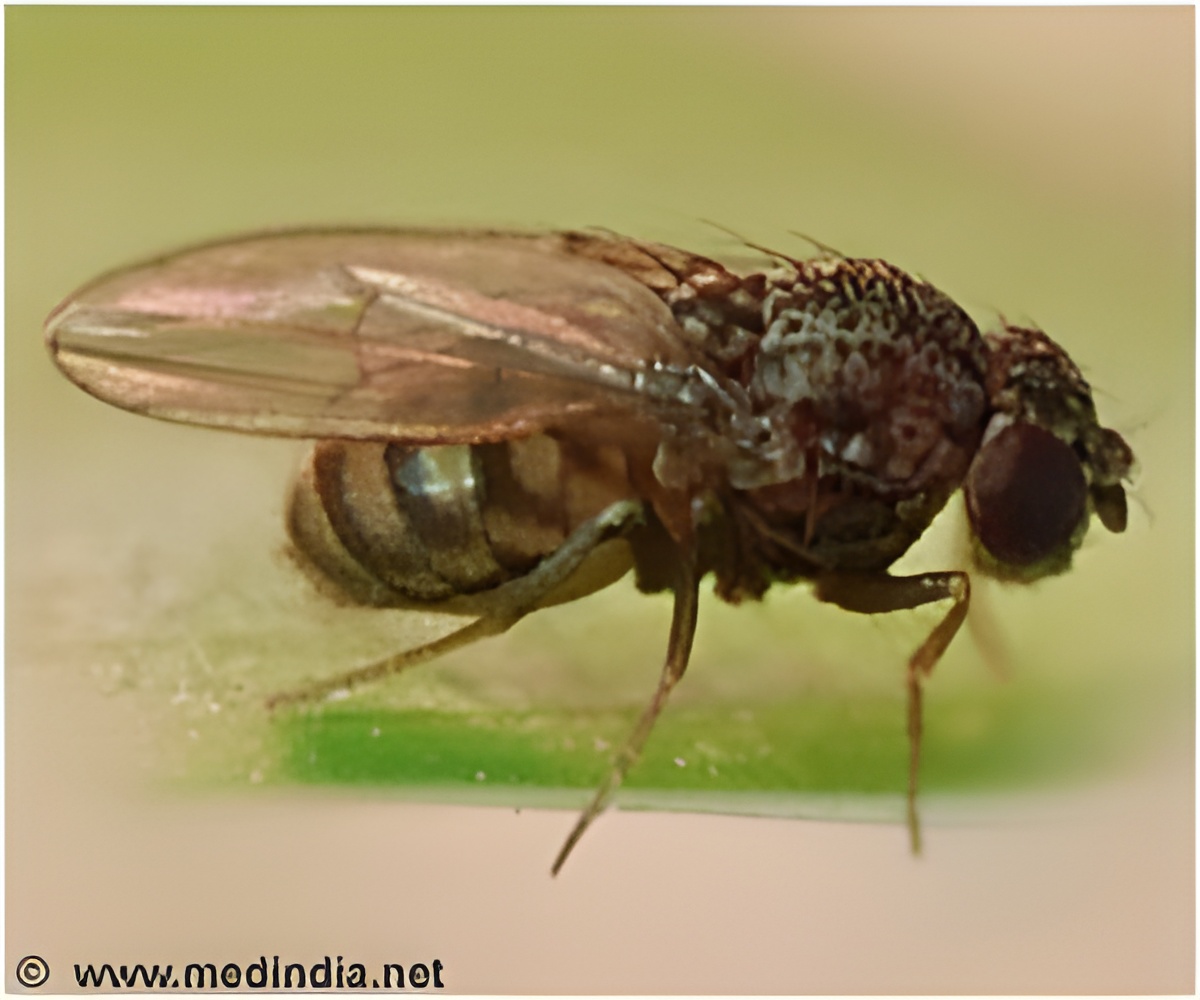
Published in June by Aging Cell, the research was conducted by a team from the School of Medicine and the Barshop Institute for Longevity and Aging Studies at The University of Texas Health Science Center San Antonio.
Why eating less may be therapeutic
Senior author Benjamin Eaton, Ph.D., assistant professor of physiology, says the results demonstrate how limiting calories may be therapeutic for people with various syndromes.
Lead author Joel Rawson, Ph.D., and the Eaton team developed a novel system to analyze the impact of diet on life span and motor behavior as well as on neurotransmission, which is believed to underlie most neurological disorders in humans.
Flies on the low-calorie diet showed a 100 percent increase in the release of brain chemicals, which are called neurotransmitters, from their neurons. These chemicals carry signals from one nerve cell to another across gaps called synapses. The brain has millions of synapses that are believed to be the critical structures required for normal brain function. Diseases such as Parkinson’s harm them irreparably.
Advertisement
Source-Eurekalert















